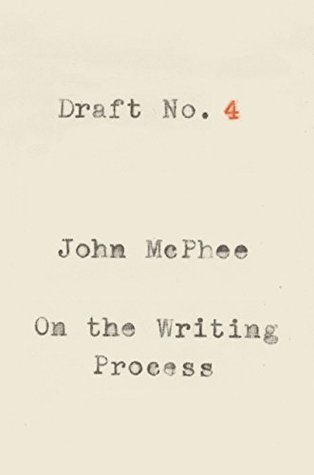More on this book
Community
Kindle Notes & Highlights
by
John McPhee
Read between
December 19, 2020 - January 21, 2021
Another mantra, which I still write in chalk on the blackboard, is “A Thousand Details Add Up to One Impression.” It’s actually a quote from Cary Grant. Its implication is that few (if any) details are individually essential, while the details collectively are absolutely essential.
With that, you have achieved a sort of nucleus. Then, as you work it over and alter it, you begin to shape sentences that score higher with the ear and eye. Edit it again—top to bottom. The chances are that about now you’ll be seeing something that you are sort of eager for others to see. And all that takes time. What I have left out is the interstitial time. You finish that first awful blurting, and then you put the thing aside. You get in your car and drive home. On the way, your mind is still knitting at the words. You think of a better way to say something, a good phrase to correct a
...more
The developing writer reacts to excellence as it is discovered—wherever and whenever—and of course does some imitating (unavoidably) in the process of drawing from the admired fabric things to make one’s own. Rapidly, the components of imitation fade. What remains is a new element in your own voice, which is not in any way an imitation. Your manner as a writer takes form in this way, a fragment at a time. A style that lacks strain and self-consciousness is what you seem to aspire to, or you wouldn’t be bringing the matter up. Therefore, your goal is in the right place. So practice taking shots
...more
Writing is selection. Just to start a piece of writing you have to choose one word and only one from more than a million in the language. Now keep going. What is your next word? Your next sentence, paragraph, section, chapter? Your next ball of fact. You select what goes in and you decide what stays out. At base you have only one criterion: If something interests you, it goes in—if not, it stays out. That’s a crude way to assess things, but it’s all you’ve got. Forget market research. Never market-research your writing. Write on subjects in which you have enough interest on your own to see you
...more
know right away when I hear a quote I’ll want to include in the story.… In interviews, I scribble and scribble, gathering impressions, observations, information, and quotes, but not altogether mindlessly. Writing is selection. From the first word of the first sentence in an actual composition, the writer is choosing, selecting, and deciding (most importantly) what to leave out. In a broader, less efficient way, that is what goes on during the scribbling of interview notes. I jot down everything that strikes me as having any potentiality whatever to be useful in the future composition, and
...more
What is creative about nonfiction? It takes a whole semester to try to answer that, but here are a few points: The creativity lies in what you choose to write about, how you go about doing it, the arrangement through which you present things, the skill and the touch with which you describe people and succeed in developing them as characters, the rhythms of your prose, the integrity of the composition, the anatomy of the piece (does it get up and walk around on its own?), the extent to which you see and tell the story that exists in your material, and so forth. Creative nonfiction is not making
...more


